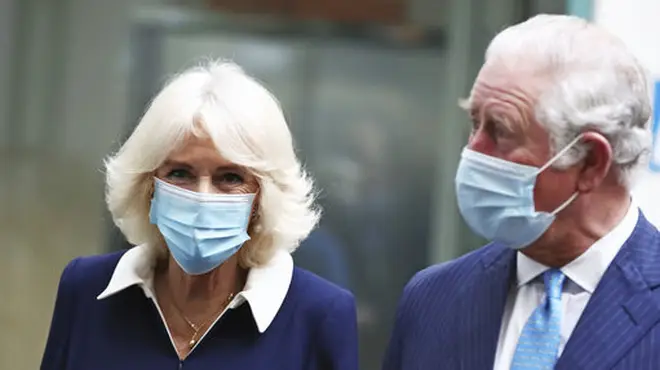
Ian Payne 4am - 7am
19 March 2021, 20:16 | Updated: 20 March 2021, 01:03

The Prince of Wales and Duchess of Cornwall will travel to Greece next week for an official two-day visit at the request of the government, Clarence House has announced.
Charles and Camilla's visit will take place between 24 and 25 March, when they will attend the Bicentenary Independence Day celebrations in Athens.
The royal pair have been invited to the event by Greece's Prime Minister Kyriakos Mitsotakis.
They have previously travelled overseas during the pandemic, visiting Germany in November for a brief two-day trip to attend commemorations marking the country's National Day of Mourning.
Clarence House said in a statement: "At the request of the British Government, Their Royal Highnesses the Prince of Wales and the Duchess of Cornwall will attend the Bicentenary Independence Day celebrations in Athens from 24th-25th March.
"This follows an invitation from the Prime Minister of Greece, Mr Kyriakos Mitsotakis.
"The Bicentenary Event's Independence Day celebrations will take place from the evening of Wednesday 24th March and will conclude on Thursday 25th March, 2021."

Boris Johnson responds to question on vaccine passports
The brief tour will be Charles' third official visit to the country following his first in 1998 and a further trip in 2018 with Camilla - her first official visit to Greece.
They will attend a reception at the newly reopened National Gallery of Greece on 24 March, hosted by the country's president Katerina Sakellaropoulou.
They will also attend a wreath-laying ceremony at the Tomb of the Unknown Soldier in Syntagma Square and a traditional military parade.
READ MORE: When can I travel to Greece and Cyprus this summer? And will I need a vaccine passport?
READ MORE: Spain 'looking at vaccine passports' and Greece 'aiming to open borders' by mid-May
In Greece, strict lockdown measures were imposed in November before primary schools and shops were allowed to reopen in January.
But curfews have returned to areas with high infection rates, including the city of Athens, along with the closure of non-essential services and schools.
This comes after a study found allowing quarantine-free travel to Greece last summer may have had a significant impact on the spread of coronavirus, according to a Public Health England (PHE).
Travel corridors, which stopped people from needing to self-isolate when returning, were linked to higher rates of onward transition of imported cases, the researchers said.